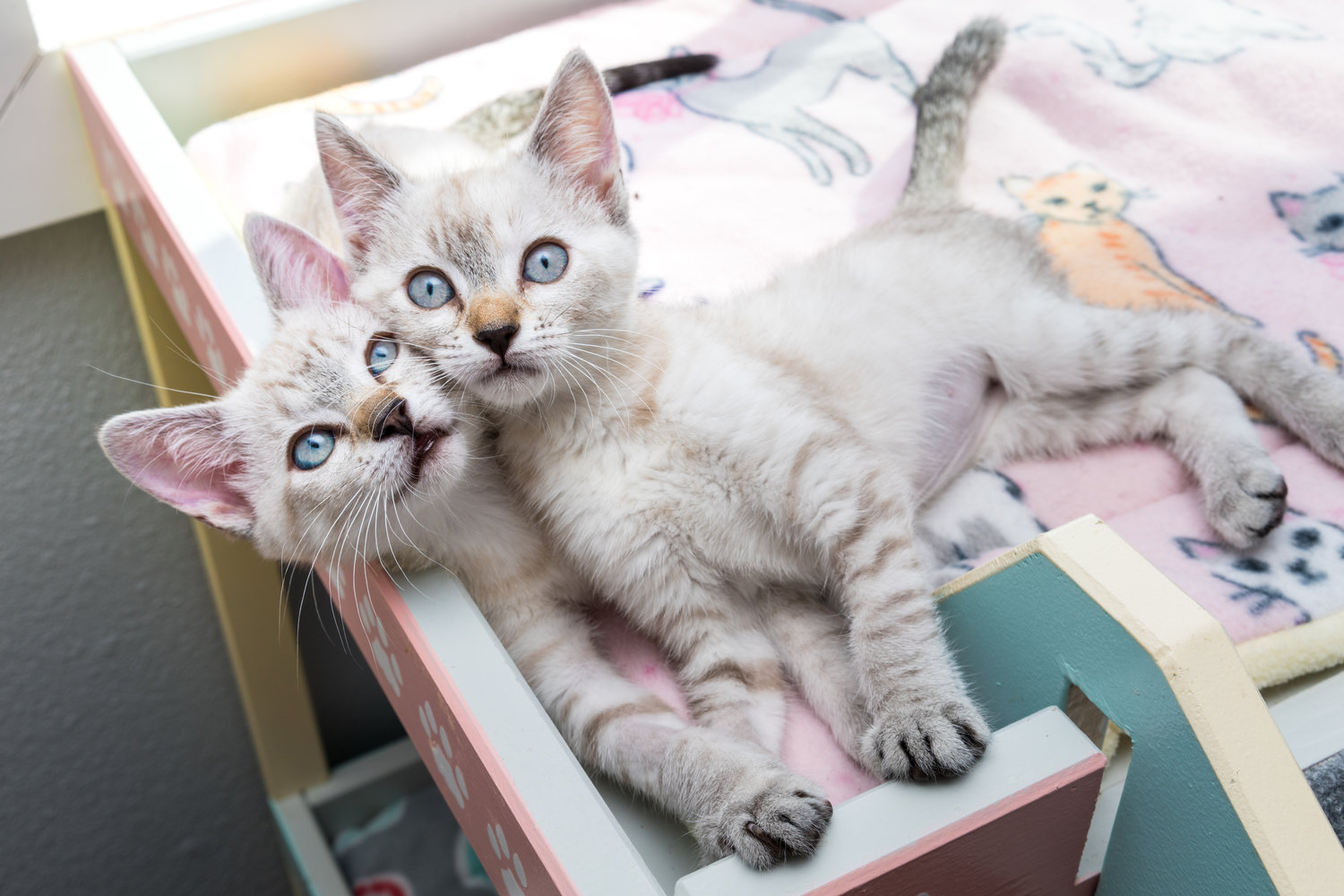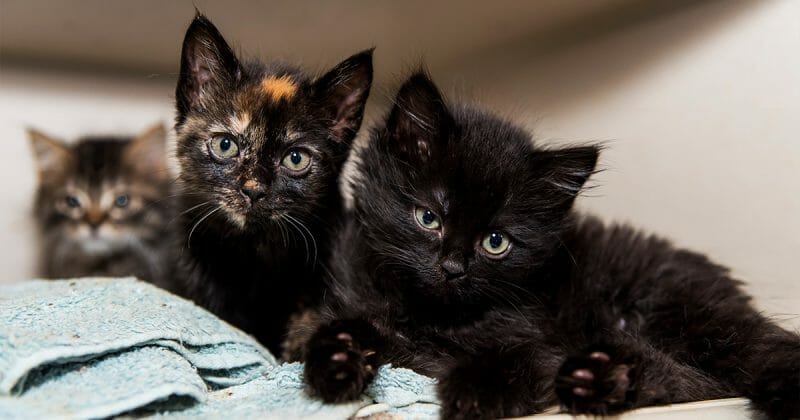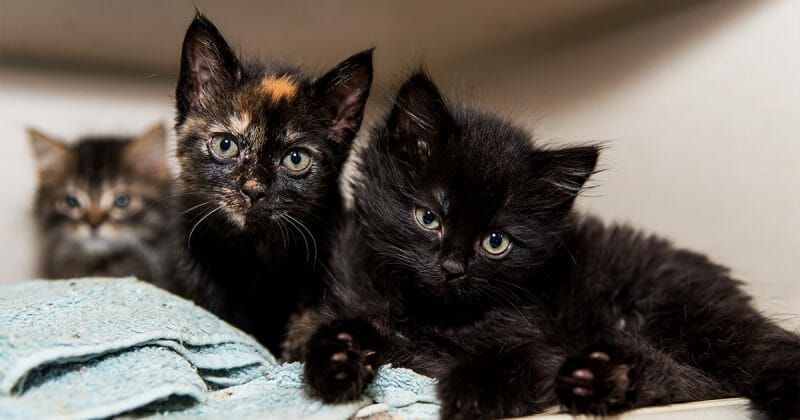Are you torn between adopting a kitten or a cat? Each has its own unique charm and benefits.
Kittens are adorable and full of energy, while adult cats are usually more relaxed and independent.
If you have the time and patience to raise a kitten and enjoy their playful nature, then a kitten might be the perfect choice for you.
On the other hand, if you prefer a more calm and low-maintenance companion, adopting an adult cat can be a great option.
Ultimately, the decision depends on your lifestyle, preferences, and the amount of time and effort you can dedicate to their care. Let’s find out what is best course of action for you.

Advantages of Adopting an Adult Cat: Why They Deserve a Second Chance
While kittens are undeniably adorable, there are many compelling reasons to consider adopting an adult cat instead.
Adult cats may not have the same level of cuteness as kittens, but they come with a host of advantages that make them well worth a second chance.
In this section, we will explore the benefits of adopting an adult cat and why they deserve a loving forever home.
1. Established Personality and Behavior
One of the biggest advantages of adopting an adult cat is that their personality and behavior traits are already well-established.
Unlike kittens, whose personalities are still developing, adult cats have settled into their unique temperaments.
This allows potential owners to choose a cat that aligns with their lifestyle and preferences.
Whether you’re looking for a calm and laid-back companion or an active and playful buddy, there’s an adult cat for every type of household.
2. Less Demanding and Destructive
Adult cats are typically less demanding and destructive compared to their kitten counterparts.
They have outgrown the phase of constant exploration and are generally more content to lounge around and enjoy the comforts of a stable home environment.
Unlike kittens who may wreak havoc by scratching furniture or getting into mischief, adult cats are more likely to be well-behaved and show better manners.
3. Socialization and Training
When you adopt an adult cat, you can bypass the early stages of socialization and training that kittens require.
Adult cats have often already been exposed to various experiences and environments, making them more adaptable and tolerant.
They are more likely to be litter box trained and understand basic commands.
Additionally, adult cats are often more sociable and affectionate, making them perfect companions for individuals or families seeking immediate companionship.
4. Health and Care
Adult cats generally require less intensive care compared to kittens. They have already gone through their growth stages and have established their adult size.
This means fewer trips to the veterinarian for vaccinations and check-ups.
Additionally, adult cats are less prone to suffer from certain health issues that are more common in kittens, such as congenital abnormalities.
By adopting an adult cat, you can save on potential medical expenses and have a better understanding of their overall health condition.
5. Saving a Life
Perhaps one of the most rewarding aspects of adopting an adult cat is the knowledge that you are giving them a second chance at life.
Adult cats often have a more challenging time finding forever homes compared to kittens.
By opening your heart and home to an adult cat, you are providing them with love, care, and security that they may have never experienced before.
You have the power to make a significant impact on their lives and offer them a new beginning.

Considerations for Adopting a Kitten: What to Know Before Bringing One Home
Adding a furry friend to your family can bring joy, love, and companionship. However, before you bring a kitten home, there are several important considerations to keep in mind.
In this section, we will discuss what you need to know before making the decision to adopt a kitten.
1. Time Commitment
Bringing a kitten into your home requires a significant time commitment. Kittens are energetic and curious creatures that need plenty of attention and playtime.
They require daily interaction, socialization, and mental stimulation. If you have a busy schedule or travel frequently, it may not be the right time to adopt a kitten.
2. Financial Responsibility
Owning a kitten comes with financial obligations. You will need to provide regular veterinary care, including vaccinations, spaying or neutering, and preventive treatments for fleas and ticks.
Additionally, you will need to budget for cat food, litter, toys, and other supplies. It’s essential to consider whether you can afford the ongoing expenses of owning a kitten.
3. Space and Safety
Kittens are naturally curious and love to explore. Before bringing a kitten home, you must ensure that your living space is safe for them.
Secure any potential hazards such as toxic plants, electrical cords, and small objects that could be swallowed. Provide a designated area for the kitten with a comfortable bed, litter box, and scratching post.
4. Allergies and Asthma
It’s important to consider any allergies or asthma within your household. Some individuals may be allergic to cat dander, which can cause respiratory issues.
If anyone in your home has allergies, it’s recommended to spend time with a cat to see if any reactions occur before deciding to adopt a kitten.
5. Long-Term Commitment
Bringing a kitten into your home is a long-term commitment. Cats can live for 15 years or more, and adopting a kitten means taking responsibility for their care throughout their lifespan.
It’s crucial to consider if you are ready to make this long-term commitment and provide a loving and stable home for your kitten.
6. Other Pets and Family Members
If you already have pets or young children, it’s important to consider their compatibility with a new kitten.
Some pets may not be tolerant of kittens, while others may be welcoming. Introducing a kitten to existing pets requires patience and careful supervision.
Additionally, teaching young children how to interact gently with a kitten is crucial for their safety and the kitten’s well-being.
7. Adoption Process
Before bringing a kitten home, it’s essential to understand the adoption process. Research local animal shelters, rescue organizations, or reputable breeders.
Take the time to visit potential adoption centers, ask questions, and gather information about the kittens available for adoption. Some organizations may require an application, home visit, and adoption fee.
8. Training and Socialization
Kittens require training and socialization to become well-behaved and friendly cats. You will need to invest time in litter box training, teaching appropriate scratching behavior, and providing positive reinforcement for good behavior.
Socializing your kitten with people and other animals will help them develop confidence and adaptability.
9. Health Considerations
Before adopting a kitten, it’s crucial to ensure they are in good health. Ask about the kitten’s vaccination history, deworming, and any known health issues.
A healthy kitten should have bright eyes, a shiny coat, and be alert and active. Schedule a visit to the veterinarian shortly after adoption to establish a healthcare routine.
10. Emotional Commitment
Adopting a kitten is not just a physical and financial commitment, but also an emotional one. Kittens need love, attention, and companionship. Consider whether you have the capacity to provide the emotional support and care that a kitten requires.
In summary, adopting a kitten is a wonderful experience, but it comes with important considerations. Make sure you have the time, financial resources, and suitable living environment before bringing a kitten home. Consider the long-term commitment, compatibility with other pets and family members, and the adoption process. With proper preparation and care, your new kitten will bring immeasurable joy and become a beloved member of your family.

Factors to Consider When Adopting an Kitten or Adult Cat: Finding the Perfect Match
In this section, we will explore the key factors to consider when adopting an adult cat.
1. Lifestyle and Activity Level
The first factor to consider when adopting a cat is your own lifestyle and activity level. Different cats have different energy levels and require varying amounts of exercise and stimulation.
If you lead an active lifestyle and have plenty of time to play with and engage your cat, a more active and playful feline may be a good fit.
On the other hand, if you have a more sedentary lifestyle and prefer a calm and low-energy cat, it’s important to choose a cat that matches your own activity level.
However, if you choose to go with a kitten, you will have the opportunity to influence lifestyle and activity of it to your liking with Aaaaa lot of effort.
2. Personality and Temperament
Every cat has its own unique personality and temperament. Some cats are more social and affectionate, while others are more independent and reserved. It’s important to consider your own personality and the type of cat that would best complement it.
If you enjoy cuddling and having a cat that is always by your side, a more affectionate and people-oriented cat may be the right choice.
However, if you prefer a cat that is more independent and less demanding of attention, a more reserved and self-sufficient cat may be a better fit.
3. Compatibility with Other Pets
If you already have other pets in your household, it’s crucial to consider their compatibility with the adult cat you are considering adopting.
Some cats are naturally more sociable and may get along well with other animals, while others may be more territorial or have a history of not getting along with other pets.
It’s essential to introduce the new cat to your existing pets gradually and monitor their interactions to ensure a harmonious and peaceful coexistence.
Kittens are easier in this as they quickly socialize with other furry friends.
4. Health and Medical Considerations
When adopting an adult cat, it’s important to take into account any specific health or medical considerations.
Some cats may have pre-existing medical conditions or require ongoing medical care. It’s crucial to gather all necessary information about the cat’s health history and consult with a veterinarian to ensure you can provide the necessary care for your new furry friend.
On the other hand, a kitten will require regular vaccinations and vet visits due to their compromised immune system early life.
5. Time and Commitment
Adopting a cat requires time and commitment. Cats are living beings that require attention, care, and love.
Before bringing a new cat into your home, it’s essential to consider whether you have the time and resources to provide for its needs.
From regular feeding and grooming to playtime and veterinary visits, owning a cat is a long-term commitment that should not be taken lightly.
6. Adoption Process and Shelter Considerations
Finally, consider the adoption process and the shelter or rescue organization from which you plan to adopt your adult cat.
Take the time to research and visit different shelters to ensure they are reputable and provide proper care for their animals.
Ask about the adoption process, any fees or requirements, and what support they offer after the adoption. The goal is to find a shelter that shares your values and prioritizes the well-being of their animals.
Conclusion:
In conclusion, whether to adopt a kitten or a cat depends on individual preferences and circumstances.
Kittens are adorable and bring joy and excitement, but they require more attention and training. They are a great choice for those looking to raise and bond with a pet from an early age.
On the other hand, adopting a cat provides a mature and low-maintenance companion. Cats are usually already trained and independent, making them suitable for busy individuals or those seeking a calm presence.
Ultimately, the decision should be based on factors such as lifestyle, time commitment, and personal preference. Whichever option you choose, giving a loving home to a feline friend is always a rewarding experience.


